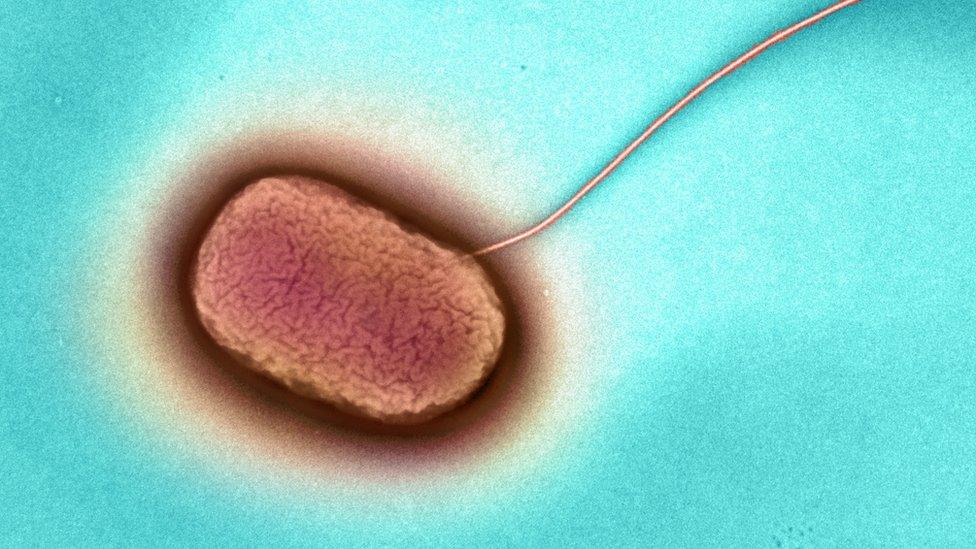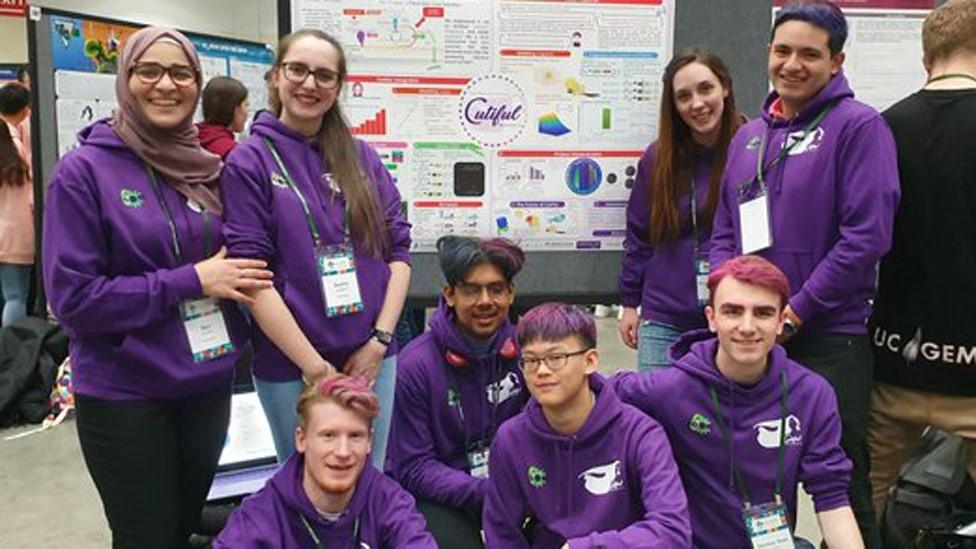E. coli bacteria modified to make 'kinder' hair dye
- Published

There are many different strains of E. coli, most of which are harmless
Genetically-modified gut bacteria have been used by a team of students to make "kinder" non-allergenic hair dyes.
The University of Manchester team modified E. coli bacteria to produce secretions that can colour, repair, straighten and fragrance hair.
Team member Elisa Barrow Molina said the idea had come from "an article we saw about how hair dyes could cause alarming reactions in some users".
The university said there were no plans to "commercialise the bacteria".

The student team used a strain of bacteria which naturally sticks to hair
A spokeswoman said the project, which has won the eight students international recognition, external, had "aimed to explore an alternative to current hair dyes, which use often harmful chemicals".
She said the students used a strain of bacteria which naturally sticks to hair to "secrete a dye, replacing the use of potential pollutant and carcinogens".
The team then realised they could modify the bacteria further to secrete other products, such as "proteins to repair hair and compounds to fragrance it".
There are many different strains of E. coli, most of which are harmless, although some can cause serious illness.
Though there are no plans to take the genetically-modified bacteria to market, the students did consider potential safety concerns and "designed two genetic kill-switches", which would prevent the bacteria from surviving away from hair or causing disease, the spokeswoman said.